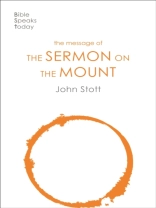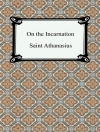The followers of Jesus are to be different, ‘ writes John Stott, ‘different from both the nominal church and the secular world, different from both the religious and the irreligious.
The Sermon on the Mount is the most complete delineation anywhere in the New Testament of the Christian counter-culture. Here is a Christian value-system, ethical, standard, religious devotion, attitude to money, ambition, lifestyle and network of relationships – all of which are totally at variance with those in the non-Christian world. And this Christian counter-culture is the life of the Kingdom of God, a fully human life indeed but lived out under the divine rule.’
In his careful exposition of the Sermon on the Mount, John Stott accurately expounds the biblical text and relates it to life today. Above all, the author says, he wants to let Christ speak this sermon again, this time to the modern world.
表中的内容
Contents
General preface vii
Author’s preface ix
Chief abbreviations xi
1. Introduction: what is this sermon? (5:1-2) 1
2. Christian character: the Beatitudes (5:3-12) 15
3. Christian influence: salt and light (5:13-16) 40
4. Christian righteousness: Christ, the Christian and the law
(5:17-20) 51
5. Christian righteousness: avoiding anger and lust (5:21-30) 63
6. Christian righteousness: faithfulness in marriage and honesty
in speech (5:31-37) 72
7. Christian righteousness: non-retaliation and active love (5:38-48) 84
8. Christian religion: not hypocritical but real (6:1-6, 16-18) 105
9. Christian prayer: not mechanical but thoughtful (6:7-15) 120
10. Christian ambition: not material security but God’s rule (6:19-34) 130
11. Christian relationships: to fellow believers and the Father (7:1-12) 148
12. Christian relationships: to false prophets (7:13-20) 165
13. Christian commitment: the radical choice (7:21-27) 176
14. Conclusion: who is this preacher? (7:28-29) 182
Study guide 193
关于作者
Known worldwide as a Bible teacher, writer, pastor and mission leader, John Stott was the author of many books, including the best-selling Basic Christianity. He was, until his death in 2011, Rector Emeritus of All Souls Church, Langham Place, London, and President of the London Institute for Contemporary Christianity.







![的封面 Brian Schrag & Julisa Rowe: Community Arts for God's Purposes [Chinese] 貼近神心意的社群藝術 的封面 Brian Schrag & Julisa Rowe: Community Arts for God's Purposes [Chinese] 貼近神心意的社群藝術](https://static.worldofdigitals.com/thumb_webp/740/9781645083740.webp)




